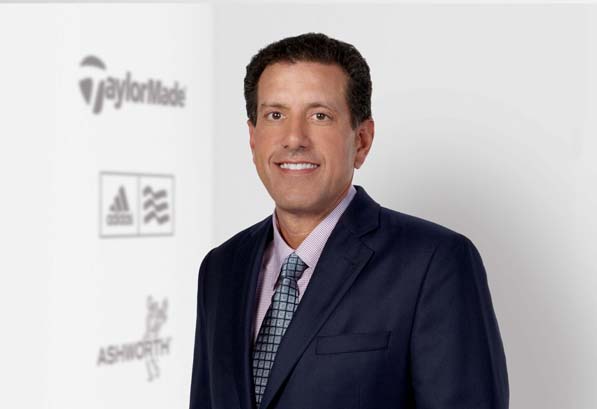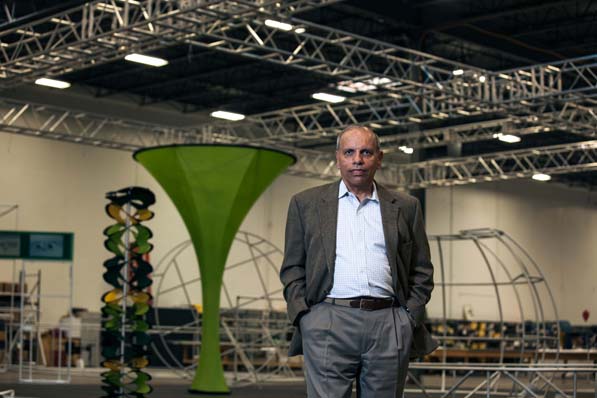After spending almost two decades in the restaurant business, Bill Bessette took his experience across the Atlantic to help bring an Italian restaurant from Germany to North America. Confused? Bessette tells Profile that with a quality brand plus a dash of communication and understanding, the recipe is simpler than it sounds.
You’ve worked for a number of food-related companies. Was that industry focus intentional?
Bessette: I don’t think there was any real strategy to it at the time. I think that came later on when I had time to reflect on it a little better.
What drew you to these types of companies?
Bessette: Well, each company taught me a different and important element of being successful in the food industry. Outback Steakhouse cemented for me how to build a brand, and what has to take place as far as quality, execution, and general operations. I was younger and enamored with the business itself. When Chart House rolled around, it was just a great experience. I lived a few years with them and that’s when my eyes started lighting up a bit, and I started thinking that I really liked being in this business. They went through three generations while I was there. For me, Chart House was so personal and exciting, I really watched the different business models and it was fascinating for me. I was watching people restarting a brand in different formats.
At that point I was being courted by Roger Berkowitz [of Legal Sea Foods]. He impacted me greatly from the standpoint of quality and brand; he really pounded those two points home. I was taking on more units and more responsibility. Then this opportunity comes for an international side.
I wanted to ask about that, did you have any international experience prior to the opportunity at Vapiano? Was that a selling point for you?
Bessette: This was at a time when I was being courted to join other companies in other positions all over the United States. There were probably a thousand people running around the US with my experience level in the industry. But at the end of the day, how many of those people could say that they had an opportunity to be involved with a restaurant opening in Mexico city or Seoul or Munich? That group is very small. So for me that was the challenge. Not necessarily mastering the international business but understanding it. We are in such a small world right now. To me that was intriguing. Now, when you get into it, and actually have to deal with it, that’s a different story [laughs].

“In my earlier years, I wish I would have paid attention to strategies that were happening in the positions above me. Your superiors want you focused on your current tasks, so it’s not easy. But today you really do need to see what else is going on.”
—Bill Bessette
What was it like adapting to the different business cultures in other countries?
Bessette: You have to understand the differences and accept them. It’s like you’re looking in a mirror. In a mirror, my right hand is their left hand, and it doesn’t seem like a big deal unless you’re right handed, you know? It’s the little things they do differently that you have to understand and respect, and then just move the ball forward. If you get into the room and you have to work together, it’s amazing the synergy that can happen.
What’s one example?
Bessette: We’ve had a plethora of conversations about the bar area in the restaurants. How that area is done here as opposed to how it’s treated in Germany, it really is night and day. You go to a Vapiano in Germany and ask for a cappuccino? You’d get the best one of your life; I can’t even explain to you how great that cappuccino would be. And if you order an exotic martini, the bartender will pull a bottle off the shelf, give you a look, and get it done—but it won’t be the prettiest thing ever. You come to one of our locations in the States and that’d be just the opposite.
What does Kelley Drye do for you as outside counsel, and how is that professional relationship?
Bessette: I was introduced to Kelley Drye through one of its partners, Richard Milone, and due to a case concerning insurance. We prevailed on the case, and Richard and my relationship began there. Today, Kelley Drye is also our general counsel and handles myriad subjects, including insurance, lease negotiations, employee law, etc. Richard Milone has been a great partner in helping us package these disciplines.
Let’s talk about growth. The company had global aspirations from the beginning. Where did that come from?
Bessette: When Gregor Gerlach came on he had a passion for food, but also understood that some franchising had to happen. Some of the people he got involved were McDonald’s franchisee owners in Germany. They had that international mind-set from the beginning, and with the money behind it as well, you can see there was a sort of chemical mix for growth and success. So yes, they had this international vision. They started off wanting to be a world brand.
How is the growth rate in Europe compared to North America? Do you plan to duplicate the growth here?
Bessette: Well, I would tell you yes. Part of it has been them learning the States and us learning them, going back to the mirror thing. The growth in Europe has been tremendous. In the States, I would say we’re set to grow just as rapidly, maybe not this year or next, but I see it happening in 2014.

